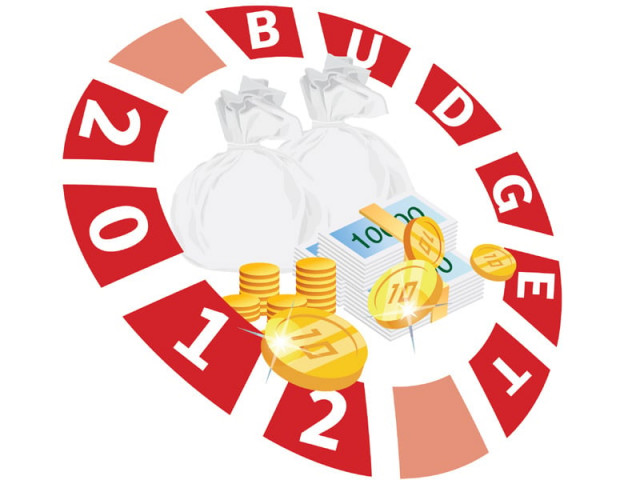The tangled web: After figure-fudging fiasco, govt may have to raise taxes
Lenders term fiscal framework ‘irrelevant’; deficit likely to hit 5% of GDP in 2012.

The tangled web: After figure-fudging fiasco, govt may have to raise taxes
Weeks after announcing the budget for fiscal year 2012, the government is being forced back to the drawing board after international creditors described its current fiscal framework ‘irrelevant’ – a direct consequence of the Federal Board of Revenue’s misstatement of last year’s revenue collection figures.
Background interviews with officials from international lenders and the government of Pakistan reveal that Islamabad is faced with a choice between revising targets to reflect a worsening fiscal deficit or levying taxes worth Rs50 billion.
Officials from global lenders say that the government’s stated target of restricting the fiscal deficit to 4% of the total size of the economy – or about Rs849 billion – is no longer realistic and called the Rs1,952 billion revenue collection target “unachievable”. They are also perturbed by the government’s refusal to end the untargeted subsidies in the power sector.
The government had estimated the 2012 revenue target assuming a 2011 base of Rs1,588 billion. The government has now admitted to having been able to collect Rs1,550 billion. The reduced base is what has caused lenders to raise questions about whether the 2012 target is achievable.
Finance ministry officials agree with the assessment of the creditors but have yet to make any decisions on the matter. One official said that a more realistic tax collection target is Rs1,882 billion, which would raise the budget deficit by Rs70 billion, or 0.33% of gross domestic product.
“The government is reviewing the situation and will take appropriate measures,” said Finance Secretary Waqar Masood.
The finance ministry is currently waiting on an assessment of the situation from the FBR. Salman Siddique, the FBR chairman, is likely to announce the government’s strategy on meeting revenue targets after the Chief Commissioners Conference – a meeting of senior tax officials – to be held on Thursday (today).
Siddique has been trying to assure the finance ministry that the current target is still achievable, but his credibility is in tatters after having been found to have misled the nation in an elated, late-night press conference on June 30 in which he had incorrectly announced that the government had met its revised revenue target.
International creditors, meanwhile, have begun asking more questions about the government’s assumptions about the deficit. Their main concern is the government’s persistent inability to decrease subsidies, particularly to the energy sector.
In the 2012 budget, the government had allocated Rs98 billion in subsidies to the power sector, but that figure assumes a deregulation of prices that has yet to happen. Each month that passes without that deregulation pushes the deficit up by Rs20 billion, or about 0.1% of GDP.
Other problem areas include the government’s assumption that it will get $1.4 billion in coalition support funds from the United States, a number that is highly questionable in light of worsening ties between Islamabad and Washington.
The government’s claims of generating Rs75 billion through the auction of 3G telecommunications licences, and Rs70 billion in arrears from Etisalat – which had bought 26% of Pakistan Telecommunications for $2.6 billion – have also been met with scepticism.
All of these ‘questionable’ assumptions may see the government miss its deficit target by Rs212 billion, or about another 1% of GDP.
“The government has yet to make up its mind about what it wants to do,” said one official. “Pakistan and the IMF are constantly in touch with each other about the next visit by IMF officials.”
Another finance ministry official said: “Pakistan has to place things in perspective. Setting low or high expectations for any IMF mission will not benefit Islamabad.”
Published in The Express Tribune, August 4th, 2011.



















COMMENTS
Comments are moderated and generally will be posted if they are on-topic and not abusive.
For more information, please see our Comments FAQ